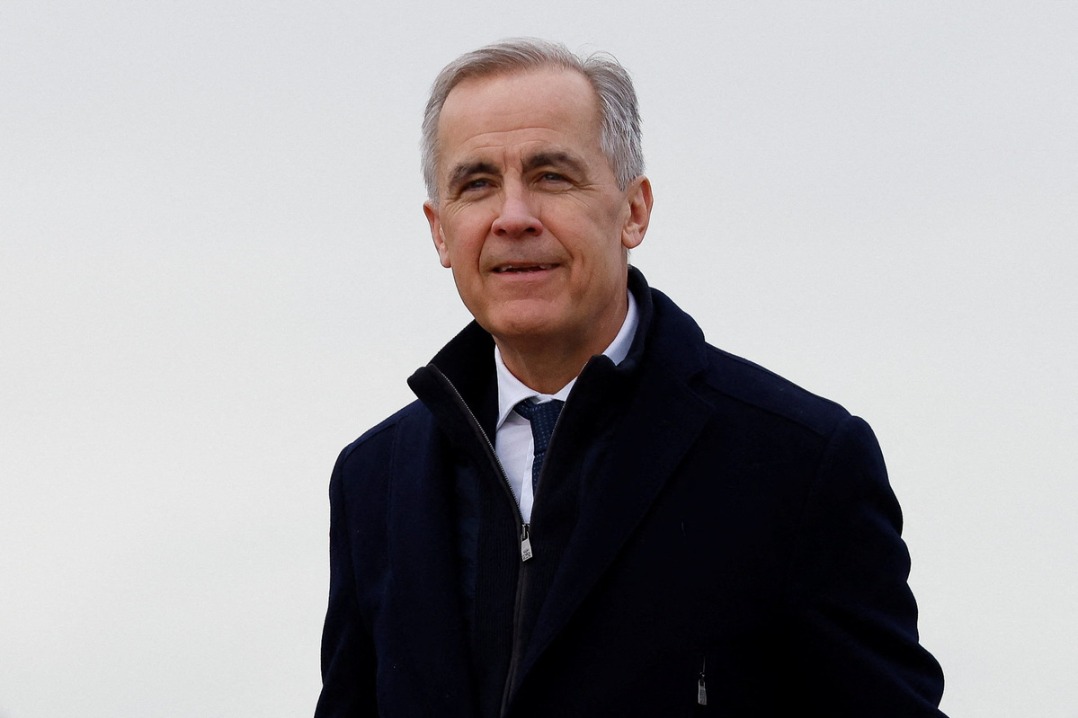China and Africa forging modern pathways to prosperity


The just-concluded Forum on China-Africa Cooperation Summit raised Sino-African friendship a notch higher, with Chinese and African leaders agreeing to a new blueprint for high-level cooperation in the new era and vowing to make serious efforts to advance modernization and build a high-level China-Africa community with a shared future.
Sino-African friendship is steeped in a rich history of mutual exchanges and has been flourishing, thanks to the intensive strategic cooperation between the two sides. As the largest developing country and the continent with the largest number of developing countries, China and Africa have the same historical mission: to achieve robust development to improve the well-being of their peoples.
The pursuit of modernization and national rejuvenation is the common aspiration of China and African countries. Guided by China's "sincerity, real results, amity, and good faith" policy toward Africa and the pursuit of greater good and shared interests, China has been making efforts to help Africa meet its development needs. Through initiatives such as the "Ten Partnership Action Plans", China has aligned the Belt and Road Initiative with the African Union's Agenda 2063, injecting new vitality into Sino-African cooperation.
As China's quest for modernization facilitates Africa's development and regional integration, the joint march of China and Africa toward modernization will elevate Sino-African cooperation to higher levels, leading to the construction of a China-Africa community with a shared future.
Chinese modernization provides valuable lessons for Africa to pursue inclusive development. In contrast, Western political and economic policies have long hindered African countries' development. In particular, after the end of the Cold War, the rise of neoliberalism created significant challenges for African countries to maintain their autonomy in terms of foreign policy.
On the other hand, the Chinese modernization process has not only enriched the global understanding of development but also challenged the long-standing Western monopoly over modernization. To be sure, the advancement of Chinese modernization has signaled the dawn of a new era in socioeconomic development and showed there is no universal model for modernization — each country must find its own path to modernization. Inspired by China's example, African countries have become confident in finding their own sustainable development paths.
Moreover, Chinese modernization offers strong support for Africa's development. African countries can learn from the achievements of China's reform and opening-up to realize modernization in line with the African Union's Agenda 2063.
From the establishment of the African Centers for Disease Control to the construction of railways linking East Africa, from Rwanda's thriving e-commerce platforms to Mozambique's flourishing agricultural parks, China has completed a series of impactful projects in Africa. These initiatives have significantly boosted Africa's development and improved the well-being of the African people.
By seizing the opportunities created by China's development, Africa is breaking long-standing barriers in funding, technology and talent. China's rapid development and technological advancement have helped create a path which African countries can follow to attain prosperity. The alignment of Sino-African efforts in their pursuit of modernization will synergize their development strategies, leading to the improvement of African people's livelihoods.
But in a world undergoing profound changes, some forces, driven by narrow self-interests, continue to resort to protectionism and unilateralism, stoking confrontation, disrupting development, and degenerating global governance.
At this crossroad in history, China's three global initiatives — aimed at addressing the challenges facing humanity — offer a solution for transforming its achievements into public goods for the betterment of people around the world. This underscores the global significance of Chinese modernization in maintaining peace and promoting development.
China's approach to global governance aligns closely with Africa's vision of strengthening regional integration and opposing external interference in African countries' internal affairs. And by jointly advancing the three global initiatives — the Global Development Initiative, the Global Security Initiative and the Global Civilization Initiative — Sino-African efforts will further boost cooperation among countries of the Global South and contribute to the creation of a fairer international order.
The joint pursuit of modernization by China and Africa will strengthen Sino-African relations, deepening their cooperation in the new era. The just-concluded FOCAC Summit has charted a new course for China and Africa to build a high-level community with a shared future, marking another milestone on their path to modernization. Underpinned by the spirit of Sino-African friendship, the road ahead will only broaden, contributing to the harmonious development of the Global South.
The author is deputy director of the Security Studies Division at the China-Africa Institute. The views don't necessarily reflect those of China Daily.
If you have a specific expertise, or would like to share your thought about our stories, then send us your writings at opinion@chinadaily.com.cn, and comment@chinadaily.com.cn.


































